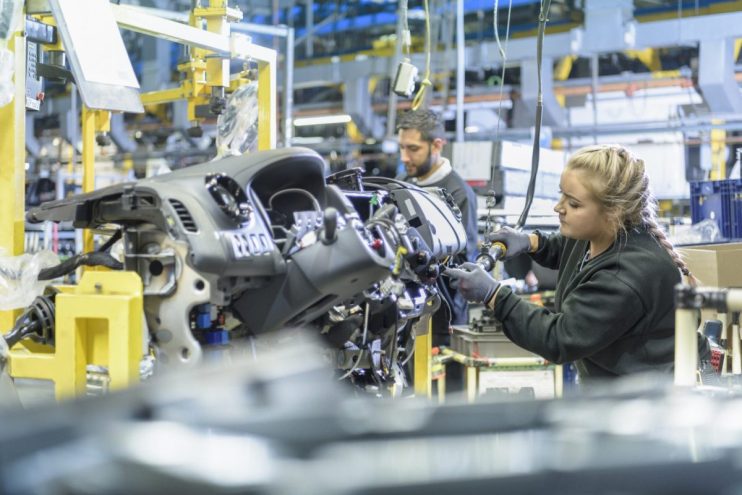Advanced manufacturing will be the cornerstone of Britain’s future economy

This year marks the 10th birthday of the high value manufacturing catapult, a project to help companies of all sizes commercialise their cutting-edge ideas by giving them access to world class facilities, scientists and technology. British manufacturing and innovation is the future of our economy and it is now the largest advanced manufacturing research capability in the whole of Europe.
The catapult covers a huge range of strategic industries, from nclear to hydrogen storage, aerospace to automotive, agriculture to pharma. The highlight of the last year was being the driving force co-ordinating industry efforts to deliver 13,437 ventilators to the NHS at a time when Covid-19 threatened to overwhelm the healthcare system.
The Catapult’s annual report, published yesterday, shows that in the toughest of all years, we worked with nearly 5,900 industrial partners – up 27 per cent on 2019-20 – and 2,234 commercial projects, excluding a further 261 with academic institutions. What is important is that the advanced manufacturing sector addresses the challenges of the next decade – from climate change to the digital transformation of the economy.
The UK needs to become an industrial superpower once more, increasing the size of the manufacturing economy from £220bn to £400bn by 2030. R&D expenditure in manufacturing and engineering will need to double in that time, while 40 megatons of greenhouse gas emissions must be removed from the sector if it is to support the charge to net zero.
The catapult specifically aims to support 20,000 SMEs by the end of the decade, helping them grow to mid-cap size. Our centres will bring 10,000 products to market. This will attract overseas investment, regenerating the regions where our centres and skilled scientists, engineers and researchers are based. Inward investment is currently £35bn; it should be 10 times that number.
A generation ago Orgreave, near Rotherham was the centre of violent industrial relations disputes; eventually, the colliery and coking plant were left abandoned. Today, 100 thriving businesses employing 2,000 people have been built around the Advanced Manufacturing Research Centre, the specialisms of which include robotics, augmented reality and composites manufacturing.
Developing the necessary and specific skills needed for the future economy will be a centrepiece over bolstering manufacturing in the UK. The pandemic has shown that society can only tackle major external threats – be they disease, conflict or environmental – through the talent, determination and adaptability of our people. The target for the catapult is to – directly or indirectly – upskill or train 200,000 engineers by 2030.
The next step is to work with government, academia and business to develop a detailed blueprint to achieve these heady ambitions. This plan will include the development of national carbon accounting standards, the identification of supply chain gaps, and the creation of a standard set of services at our centres that can be accessed by any technology-driven company in the UK.
The Intergovernmental Panel on Climate Change’s report yesterday was yet another reminder of the responsibility that industries have to protect the environment. For us, that will come through the digitisation of manufacturing processes and the development of sustainable new products, which we will showcase at the international mega-meeting, COP26 in November.
The past 10 years were vitally important – ministers’ decision to prioritise advanced manufacturing as a strategic industry has been vindicated. The foundations have been built, the tone set, and thousands of businesses and our smartest people have benefitted.
The next decade will see even greater challenges. But, with those issues comes the tremendous opportunity for the UK to lead the world in developing sophisticated technology that improves lives everywhere.